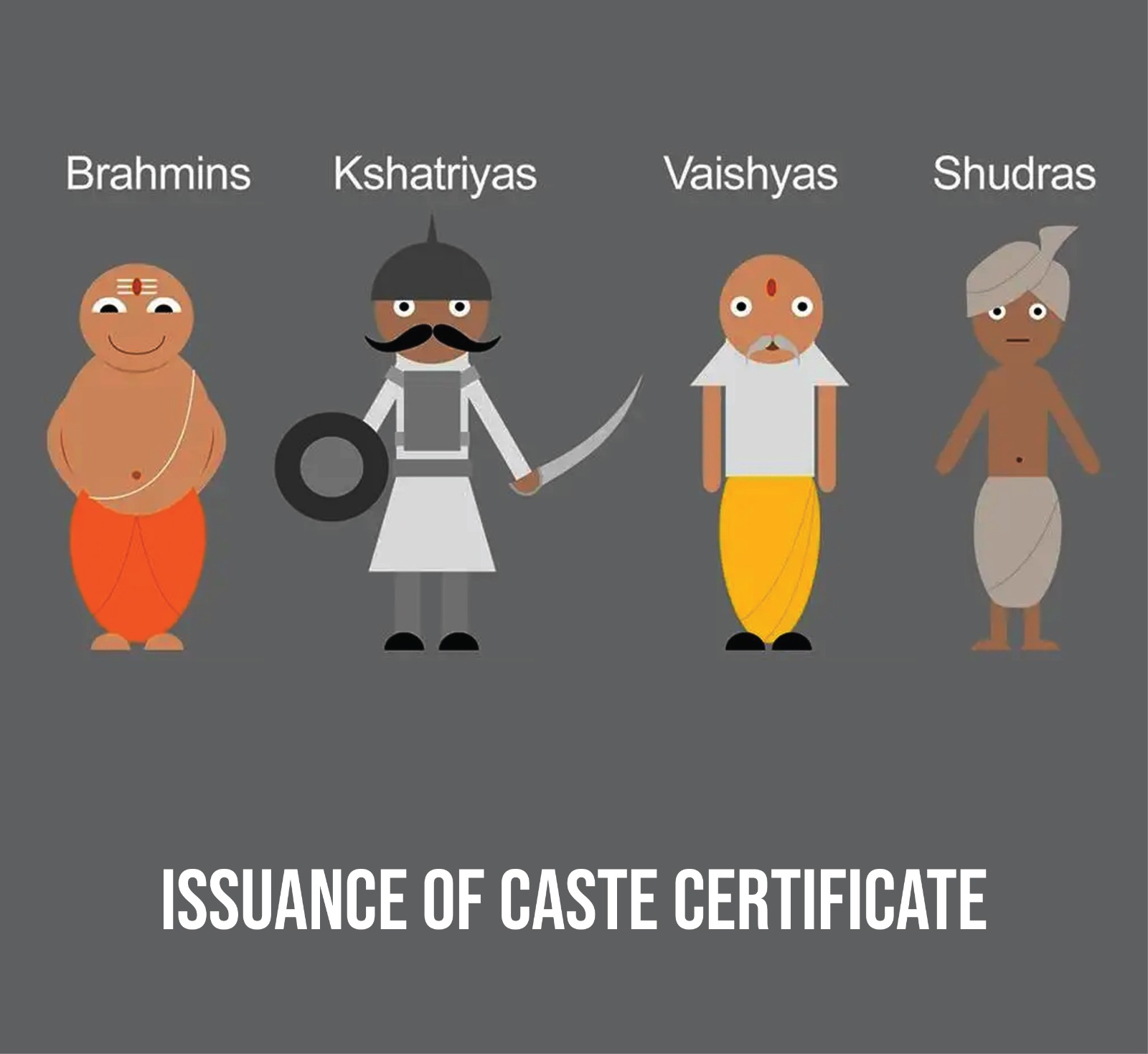Issuance of Legal Heir Certificate

- info.sonydig
- Jun 19, 2024
- No Comments
Introduction
When a family member passes away, handling their legal and financial affairs becomes a crucial task. One of the essential documents required during this time is the Legal Heir Certificate. This certificate legally recognizes the deceased person’s heirs and is vital for transferring the deceased’s assets to their rightful successors. Whether it involves accessing bank accounts, claiming insurance, or dealing with property, this document ensures that the legal heirs can rightfully claim their inheritance. Understanding how to obtain this certificate can simplify many of the procedures involved with estate management and inheritance.
Understanding Legal Heir Certificate
Definition and Importance
A Legal Heir Certificate is an important document issued by a competent government authority that identifies the rightful successors who can claim the property of a deceased person. This certificate plays a pivotal role in the smooth transfer of assets, ensuring that the inheritance process adheres to legal standards. The certificate comprehensively lists all legal heirs, providing clarity and preventing potential disputes among family members about the assets of the deceased.
Usage in Inheritance Matters
Primarily, the Legal Heir Certificate is used to facilitate various inheritance affairs—ranging from accessing the deceased’s bank accounts to transferring property titles and claiming insurance. It is instrumental in legal and civil matters, serving as proof in courts when settling any disputes over the deceased’s estate. Additionally, government departments require this certificate for the continuation of pension or other government benefits to the eligible family member.
Eligibility Criteria for Legal Heir Certificate
Who Can Apply?
The eligibility to apply for a Legal Heir Certificate is generally restricted to immediate family members of the deceased, which includes:
– Spouse
– Children (including legally adopted children)
– Parents
– Siblings (in cases where there are no direct descendants)
In the absence of any immediate family members, distant relatives may apply, provided they can prove their relationship and potential legal claim to the deceased’s assets.
Steps to Obtain a Legal Heir Certificate
Application Process
To start the process of obtaining a legal heir certificate, the applicant must first gather the necessary documents. These typically include the death certificate of the deceased, an affidavit stating the relationship to the deceased, and identity proof of the applicant. Once the documents are collected, the applicant needs to fill out the prescribed application form available at the local municipal office or tehsildar’s office. It’s crucial to ensure that all the information provided in the application is accurate to avoid any delays or rejections.
Verification and Approval
After the application is submitted, it undergoes a verification process. The authorities may conduct a ground-level inquiry, which could involve visits to the applicant’s residence and interviews with other family members or neighbors to verify the details provided in the application. This step is vital to ensure that the certificate is granted to the rightful heir(s). Once the verification is satisfactorily completed, the application moves to the next stage for approval by the designated official, usually the tehsildar or a municipal officer.
Issuance of Certificate
Upon approval, the legal heir certificate is issued to the applicant. The certificate typically lists all recognized legal heirs of the deceased, which is crucial for settling the inheritance and other legal formalities. The issuance usually follows soon after the approval, and the applicant is informed about the pickup or delivery options available.
Legal Procedures Involved
Role of Authorities
The role of local authorities, primarily the tehsildar or municipal officers, is central in the process of issuing a legal heir certificate. They are responsible for examining the application, conducting the verification process, and ultimately, approving the issuance of the certificate. Their objective is to ensure that the legal heir certificate reaches its rightful owner, thereby preventing any fraudulent claims.
Timeline for Processing
The entire process from application to issuance of the legal heir certificate can vary significantly depending on the region and the specific circumstances of the case. Generally, it takes about 15-30 days after the application is submitted if all documents are in order and the family lineage is clear. However, cases involving disputes or unclear familial relationships may extend the timeline considerably, sometimes taking several months to resolve. Understanding this timeline is vital for applicants to plan accordingly and ensure that all necessary preparations are made for managing the deceased’s estate.
Rejection Reasons
Rejection of applications for legal heir certificates is not uncommon and can occur due to several factors:
– Insufficient proof of relationship to the deceased: Applicants must provide valid, government-issued documents that establish their relationship with the deceased.
– Inconsistencies in the documents provided, like different names or details in different documents.
– Submission of outdated or expired documents.
Ensuring that all documentation is current, consistent, and properly verified can significantly reduce the risk of application rejection.
Importance of Legal Heir Certificate in Inheritance
The legal heir certificate plays a pivotal role in the process of inheritance as it legally recognizes individuals who are entitled to inherit the property and assets of a deceased person. This certificate:
– Serves as a crucial document in legal and civil matters related to the distribution of the deceased’s assets.
– Is often required by financial institutions before the assets of the deceased, such as bank accounts, can be accessed or transferred to heirs.
– Helps in preventing disputes among potential heirs, thereby providing a clear legal standing on who the recognized heirs are.
In essence, the legal heir certificate not only simplifies the inheritance process but also ensures that the property and assets are distributed according to legal entitlements, helping to uphold the rights of the deceased’s family members.
Conclusion
Conclusively, the process of obtaining a legal heir certificate is an essential step for anyone looking to establish rightful claim over an inheritance or estate left by a deceased relative. By ensuring that all the required documents are gathered, understanding the local legal stages, and potentially engaging with legal professionals, the process can be navigated more smoothly. Remember:
– Documentation is key: Keep all required documents well-organized.
– Legal advice helps: Consider consulting a lawyer to ensure all legalities are properly addressed.
– Patience is a virtue: The process can take time, so patience and persistence are important.
The issuance of a legal heir certificate solidifies your entitlements and can aid significantly in legal and financial proceedings. Start preparing today to help ease your way through what can be a complex process.
Prerequisite Documents:
Mandatory Documents
- Proof of Identity of Applicant – Voter ID / Aadhaar Card / PAN Card / Passport.. etc *
- Identity proof of all Legal Heir *
- Death Certificate *
- Copy of first page of service book if deceased was a Govt. employee.
- Copy of finally published settlement ROR / consolidation ROR / Land passbook
- Any other document in support/claim
A legal heir certificate, also known as a succession certificate or heirship certificate, is a document issued by the government or a competent authority that establishes the rightful successors of a deceased person. This certificate is often required for various legal and financial purposes, such as transferring property, accessing bank accounts, claiming insurance benefits, or settling debts.
Department
- Establishment of Machinery Banks for Custom Hiring
- Farmer profile updation
- Farmer Registration & Updation
- Mukhyamantri Krushi Udyoga Yojana (MKUY)
- National Food Security Mission (NFSM) - Support for Cultivation and Expansion of Oil Palm
- Special Fruit Specific Scheme
- Subsidy for Farm Mechanisation (farm machinery and implements) in selected Villages of Aspirational Districts
- Sugarcane Harvester for Custom Hiring
- Supply of Potato, Vegetables, and Spices Minikits at Subsidized
- Application for Insurance Coverage for Livestock
- Broiler Poultry Farming
- Construction of Growout Tanks
- Construction of New Ponds for Brackish Water Aquaculture
- Construction of Rearing Ponds
- Fish Transport Vehicles
- Issuance of Postmortem Reports and Insurance Documents for Insurance Claim of livestock
- Layer Poultry Farming
- Mini Poultry Feed Mill
- Motorisation of Traditional Crafts
- Popularization of Fisheries Machinery/Equipment
- Promotion of intensive aquaculture through biofloc technology
- Providing boats(replacement) and nets for traditional fishermen
- Registration of fishing boats(Marine)
- Registration of New Brackish Water Fish Farms
- Renewal of Fishing License
- Renewal of Registration of Brackish Water Fish Farms and Hatcheries
- Semi-Commercial Duck Farming
- Semi-Commercial Pig Farming
- Small Scale Poultry Hatchery
- Fire Safety Certificate for Building(s) or Premises
- Fire Safety Certificate for Temporary Structure
- Fire Safety Recommendation for Proposed Building(s)
- Fire Safety Recommendation for Temporary Structure
- Supply of Copy of Fire Certificate for Fire Incident in Insured Premises below 10 Lakh
- Supply of Copy of Fire Certificate for Fire Incident without Insurance
- Supply of Copy of Fire Report
- Amendment / Cancellation of Registration - Registration of Trade Union(M-18)-Labour(The Trade Unions Act, 1926 And Regulation, 1941)
- Amendment of Licence under Contract Labour Act
- Amendment of license under Factories Act 1948
- Amendment of RC under Orissa Shops & Commercial Establishments Act, 1956 And Orissa Rules 1958
- Amendment of Registration Certificate - Registration of Establishment(M-9)-Labour (The Building & Other Construction Workers (RE&CS) Act, 1996 and its Odisha Rules, 2002)
- Amendment/ Transfer of Registration - Registration of Motor Transport undertakings(M-12)-Labour (The Motor Transport Workers Act, 1961 And Orissa Rules, 1966)
- Ammendment of license under the Inter State Migrant Workmen Act 1979
- Ammendment of RC under Contract Labour Act
- Ammendment of RC under the Inter State Migrant Workmen Act 1979
- Annual Contributions
- Appeal for RC/license under the Inter State Migrant Workmen Act 1979
- Appeal for registration/Grant of license under Contract Labour Act
- Approval for extension plan for factories under Factories Act 1948
- Approval of erection permission for boilers under the Boilers Act 1923
- Approval of list of Holidays(M-16)-Labour(Odisha Industrial Establishments (National & Festival) Holidays Act, 1969 And Orissa Rules 1972)
- Approval of plan and permission to construct or take in to use of any building as factory under Factories Act 1948
- Approval of repair orders for boilers under the Boilers Act 1923
- Approval of steam pipeline drawings under the Boilers Act 1923
- Cancellation of License - The Beedi and Cigar Workers (CE) Act, 1966 And Orissa Rules, 1969
- Certification of Standing orders(M-17)-Labour (Industrial Employment (Standing Orders) Act, 1946 And Orissa Rules 1946)
- Death benefit
- Endorsement of Certificates of Boiler Attendants
- Endorsement of Welder's certificate
- Grant of Certificate for Manufacture of Boilers and Pressure Part Components - The Boilers Act, 1923
- Grant of Certificate of Registration - Registration of Trade Union(M-18)-Labour(The Trade Unions Act, 1926 And Regulation, 1941)
- Grant of Erector Certificate for Boiler and Steam pipelines - The Boilers Act, 1923
- Grant of Funeral expenses
- Grant of license for contractors under Contract Labour Act
- Grant of license for employment of migrant workmen in the recipient state under the Inter State Migrant Workmen Act 1979
- Grant of license for recruitment by the contractor in home state under the Inter State Migrant Workmen Act 1979
- Grant of license for recruitment by the local agent , who supply migrant workmen to the contractors of the outside state under the Inter State Migrant Workmen Act 1979
- Grant of Marriage assistance for marriage of Self / Dependent girl child
- Grant of Maternity benefit
- Grant of Repairer Certificate for Boilers and Steam pipelines - The Boilers Act, 1923
- Insured Person registration for Integrated Inventory Management System
- Intimation of BOE Certificate - Endorsement & Revalidation
- Modification of Standing orders(M-17)-Labour (Industrial Employment (Standing Orders)Act, 1946 And Orissa Rules 1946)
- Registration of boilers under the Boilers Act 1923
- Registration of Construction Worker
- Registration of Establishment - Registration of Motor Transport undertakings(M-12)-Labour (The Motor Transport Workers Act, 1961 And Orissa Rules, 1966)
- Registration of Establishment - The Beedi and Cigar Workers (CE) Act, 1966 And Orissa Rules, 1969
- Registration of establishment under Contract Labour Act
- Registration of establishment under the Inter State Migrant Workmen Act 1979
- Registration of Establishment(M-9)-Labour(The Building & Other Construction Workers (RE&CS) Act, 1996 and its Odisha Rules, 2002)
- Registration of RC under Orissa Shops & Commercial Establishments Act, 1956 And Orissa Rules 1958
- Registration/Grant of license under Factories Act 1948
- Reimbursement Claim of Medicine (RCM)
- Renewal of boilers and grant of short duration certificate under the Boilers Act 1923
- Renewal of Certificate for Manufacture of Boilers and Pressure Part Components - The Boilers Act, 1923
- Renewal of Erector Certificate for Boiler and Steam pipelines - The Boilers Act, 1923
- Renewal of License - The Beedi and Cigar Workers (CE) Act, 1966 And Orissa Rules, 1969
- Renewal of license of contractors under Contract Labour Act
- Renewal of license under Factories Act 1948
- Renewal of license under the Inter State Migrant Workmen Act 1979
- Renewal of Registration - Registration of Motor Transport undertakings(M-12)-Labour(The Motor Transport Workers Act, 1961 And Orissa Rules, 1966)
- Renewal of Repairer Certificate for Boilers and Steam pipelines - The Boilers Act, 1923
- Revalidation of Welder's certificate
- Transfer of license under Factories Act 1948
- Amendment of Byelaw of Registered Society (District level)
- Amendment of Registered Partnership Firm
- Amendment of the Bye-law of Registered Society (State Level)
- Apply for Conversion of Agricultural Land U/s 8(A) of OLR Act
- Apply for Demarcation (For Industries/Corporate Sectors only)
- Apply for Marriage Registration
- Apply for Mutation
- Apply for Partition of Land on Mutual Agreement U/s Sec 19(1)C of OLR Act
- Certified Copy of Previously Registered Deed
- Certify Copies of ROR
- Create UAI
- Dissolution of Partnership Firm
- Dissolution of Society
- Issuance of Caste Certificate
- Issuance of Guardianship Certificate
- Issuance of Income & Asset Certificate
- Issuance of Income Certificate
- Issuance of Legal Heir Certificate
- Issuance of OBC Certificate
- Issuance of Residence Certificate
- Issuance of SEBC Certificate
- Issuance of Solvency Certificate
- Issuance of Tribe Certificate
- Issue of Encumbrance Certificate
- Registration of Documents (Submission)
- Registration of Partnership Firm
- Registration of Society (where more than one district is involved -State Level Society)
- Registration of Society (where one district is involved)
- Issue of Certificate Verification (CHSE)
- Issue of duplicate copy of High School Certificate
- Issue of duplicate copy of the High School Mark sheet by Board of Secondary Education, Odisha.
- Issue of Migration Certificate
- Issue of Original High School Certificate –cum-Mark sheet by the Board of Secondary Education, Odisha
- Issue of Pass /Equivalence Certificate
- Issue of verification of Mark Sheet by CHSE
- Readdition of Marks on Manual Valuation (CHSE)
- Readdition of Marks on Screen Valuation (CHSE)
- Renewal of affiliation to the Colleges by CHSE
- Authentication of certificates under World Educational Society Employers (VSSUT)
- Duplicate / Name Correction Degree Certificate (BPUT)
- Duplicate / Name Correction Grade Sheet (s) (BPUT)
- Duplicate Degree Certificates (VSSUT)
- Duplicate of Printed Provisional Pass Certificate (CET & IGIT Saranga)
- Duplicate of Printed Provisional Pass Certificates (VSSUT)
- Final Exam Grade Sheet (CET & IGIT Saranga)
- Final Exam Grade Sheets (VSSUT)
- Migration Certificate (BPUT)
- Migration Certificate (VSSUT)
- Online Final Grade Sheet (s) (BPUT
- Online Provisional Pass Certificate (BPUT)
- Online Provisional Pass certificates (VSSUT)
- Online Semester Grade Sheet (s) (BPUT)
- Photocopy of used answer Booklet (s) by E-Mail (BPUT)
- Photocopy of used Answer Booklets (by-Email) (CET & IGIT Saranga)
- Photocopy of used Answer Booklets(by e-mail) (VSSUT)
- Provisional Certificate (CET & IGIT Saranga)
- Semester Grade Sheet (CET & IGIT Saranga)
- Semester Grade Sheets (VSSUT)
- Transcript (CET & IGIT Saranga)
- Transcript (s) (BPUT)
- Transcript (VSSUT)
- World Education Services (Academic Records Request Form) (BPUT)
- Admission of Disabled students in Special School
- Free laptop for students
- Online Application and issuance of PwD ID Cards
- Online Application and sanction of Marriage Incentives
- Online Application for MBPY Pension Scheme
- Online Application for NSAP Pension Schemes
- Online Application for Scholarships
- Online Grievance lodge system
- Online Registration for BBSA Camp
- Online Registration for NGOs















